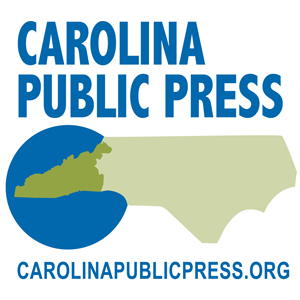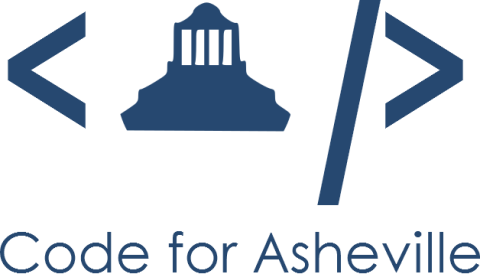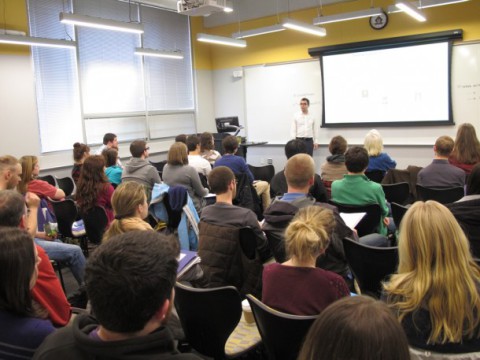Public access to local, state and federal government information is often acknowledged as a basic right of citizens under American law. “I think local-government data is a national treasure,” Jonathan Feldman, chief information officer for the city of Asheville, told Mountain Xpress in a 2012 interview. Shining a light on the process and making it easier are key elements in regional initiatives and are also highlighted in a national event, Sunshine Week, which runs March 15-21.
This year, local organizations, municipal bodies and citizens groups across Western North Carolina have partnered to empower community members to play a direct hand in the management and accessibility of public records, and help create a virtual landscape where responsibility for the dissemination of these records is shared by everyone. “If we do the right things,” says Feldman, “it leads to decreased cost of government, increased citizen services, more access to the information people want.”
The key to access
“Democracy survives on open-ness and engagement in the public sector,” says Angie Newsome, executive director of one of the initiative’s leading groups, the Asheville-based news nonprofit Carolina Public Press. “It’s essential to providing oversight on what government agencies and officials are doing on our behalf. Access to records are a key part of a vibrant democracy.”
But what are the basics for accessing this information? According to the N.C. Department of Justice, “The Public Records Law does not describe any specific procedure that a person must follow in requesting to inspect public records.” While a query can be made to any government employee within a department, “it is the custodian of public records who is specifically required to allow those records to be inspected.” Generally, the custodian is the official in charge of the department one is requesting information from.

If that seems vague or perplexing, you’re not alone in thinking so. “Unfortunately, North Carolina law is pretty complex” when it comes to finding what one can access and whom to ask, says Newsome. “In a lot of cases, it can lead to frustration and distrust of government agencies by the public.” She cites such impediments as a lack of clarity in the state’s public access laws and the nonexistence of a third-party arbitrator between requesters and government bodies.
With the burden of deciphering a request and compiling relevant information falling on often overworked government employees, it’s easy to see where problems can arise. “I think many public officials don’t have the proper training to understand the laws around public records,” says Newsome. “People are afraid of releasing information they shouldn’t and find it easier to say ‘no’ to requests for data than try and interpret something they don’t completely understand.”
Public access in the digital age
“If something is useful to staff to make into open data, we do it. … If policymakers want to see it published, same. If we get a lot of citizen input that citizens want to see a data set published, we do it,” Feldman said in a recent interview with Government Technology.
He emphasizes the “Three P’s” in regard to providing public records: pragmatic solutions that ease the burden on public employees and save money and time; policy adherence and expanding the ways local government achieves policy goals; and the participation of the community in deciding what records are prioritized to be released and what the best format for that is.
Technological advances have provided the means to address some of the common problems of accessing data records, while simultaneously providing governmental offices with an easy, efficient way to gather and distribute information to the public.
One example is avlbudget.org, a collaborative project between the city and local tech group Code for Asheville. The site provides an overview as well as details about the Asheville city budget for the 2014-15 fiscal year, organizing what would be a mountain of paperwork and statistics into an easy-to-understand, interactive display that anyone can navigate. The site also provides access to the underlying metadata and statistics.

This type of technology “puts information in the hands of the public in a streamlined way,” says Newsome.
Transparent access is an essential duty for those in public service. “We have a very strong commitment to providing access to information,” says Scott Barnwell, a member of the Code for Asheville brigade and an employee for the Asheville IT services department. “From our perspective, it’s not just about following local and state statutes, but taking them a step further towards more accessibility. It’s providing what the people want.”
The Budget Project also offers a model of how open-source data hubs can be expanded to include a large variety of public records and provides an equal medium that community members of all backgrounds can understand. “The AVL Budget Project has been a resounding success — where the city traditionally released a gigantic PDF document before,” says Code for Asheville co-captain Patrick Conant. “Most citizens have never reviewed the details of the city budget, simply because it’s difficult to navigate a document of that size.”
“This will fundamentally change access to public records,” say Newsome, “especially for rural communities around WNC where the means and accessibilty to electronic public records may not exist yet.”
“Of the people…”
Recently, Carolina Public Press has teamed up with regional universities, media outlets, community organizations and municipalities across WNC to begin work on openwnc.org, a portal for compiling and providing access to records across the region in a streamlined, user-friendly format. Slated to launch this summer, the website will provide access to governmental records for 18 counties in North Carolina, providing data on economics, crime rates, building permits and other user-requested topics.
Barnwell sees sites like openwnc.org (and the city’s already operational opendatacatalog.ashevillenc.gov) as a way to break down traditional barriers and offer a “self-service” option for people to seek out data.
“We look at the open data catalog [for Asheville] as a preliminary first step towards larger electronic access,” he says. Currently, the city provides 30 data sets, which are updated daily to reflect the latest statistics and public records. Barnwell adds that while some data formats are more difficult to compile, the city “tries its best to feed the all the information we can into the data hubs.”
Using open-source programming employed by many governmental bodies across the world, openwnc.org will operate similarly to Asheville’s city data hub but on a grander scale. The flexible, free nature of the program would allow community members to “vote up or down” requests for public records, helping officials to determine what data sets to prioritize for release, according to Barnwell.
The site would also provide a comments section and the opportunity to “follow” a particular data set or collection of statistics, much the way participants follow topics and people on such social media sites as Facebook and Twitter.
One of the most beneficial aspects of the proposed website would be its ability to process raw data and frame information in an efficient, visually understandable format. “The platform allows citizens to interact with the records,”says Conant. “You will also have the ability to share your visualization with others via a link, or by embedding it into another piece of content such as a blog post or article.”
Barnwell hopes the project will “provide tools to help visualize and graph data, which could make information more meaningful to the average person.”
Newsome and Carolina Public Press’ project partners hope that the initiative will lead to greater community involvement and inquiry into what local and state governments are doing, as well as help form connections across WNC that can only lead to a stronger dialogue on common issues faced by communities.
“The goal of this project is to have people go to openwnc.org and be able to research a topic, share data and facilitate discussion around it,” Newsome says. “This discussion is already happening in a lot of places around the region, but the basic information about it is missing.”
Conant adds, “Open WNC will provide a regionalized source of data from a variety of sources, including cities, counties and universities” instead of a single-source entity, as many current open-data efforts operate from.
While the promise of a digital warehouse of public records and data is exciting, there is still much work to do before that becomes a reality. Factors such as what to data to include and what gets uploaded first, as well as the expenses of hosting and launching such an expansive site, remain to be sorted out.
Barnwell acknowledges that the process can be time-consuming but says that, ultimately, creating electronic access that is self-updating and visually appealing can not only drive public interest but also relieve public officials of responsibility for compiling relevant data, allowing them to focus on other important aspects of their jobs.
In the meantime, Newsome suggests that concerned citizens can educate themselves on what information is entitled to them and their rights to access that data. “People need to understand the laws in North Carolina regarding public access to data and records. They need to know how data is created, and what it means to them and their community.”

Want to learn more?
WHAT: To educate citizens, journalists, organizations and others, Carolina Public Press will host two Full Disclosure workshops focusing on methods for accessing public records. The workshops will be led by Jon Elliston, CPP’s open-government editor, and Charles Coble, a partner with Brooks Pierce law firm who specializes in media and communications law. Training will range from help understanding North Carolina public access laws to how to request and retrieve documents at local, state and federal levels.
WHEN: 9 a.m.-noon on Friday, March 20
MORE INFO: Go to CarolinaPublicPress.org.




Before you comment
The comments section is here to provide a platform for civil dialogue on the issues we face together as a local community. Xpress is committed to offering this platform for all voices, but when the tone of the discussion gets nasty or strays off topic, we believe many people choose not to participate. Xpress editors are determined to moderate comments to ensure a constructive interchange is maintained. All comments judged not to be in keeping with the spirit of civil discourse will be removed and repeat violators will be banned. See here for our terms of service. Thank you for being part of this effort to promote respectful discussion.